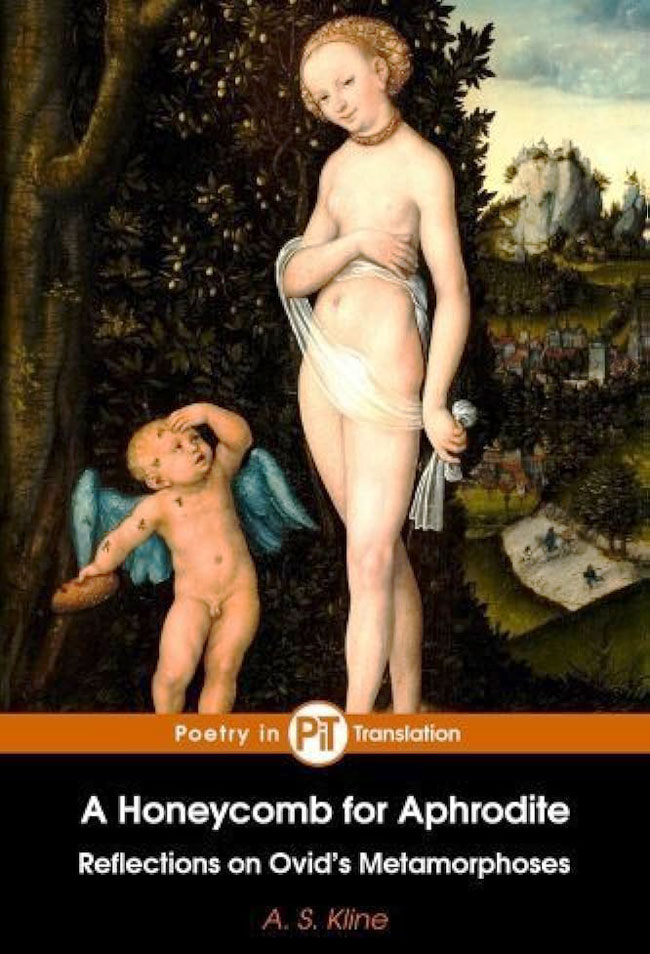|
Reflections On Ovidís Metamorphoses
Translated by A. S. Kline

Reflections On Ovidís Metamorphoses
With illustrations by Crispijn de Passe (The Netherlands, 1564 - 1637) courtesy of the Rijks museum.
About This Work
With this innovative analysis of Ovidís Metamorphoses the author provides an essential companion volume to his translation of the work itself. The nature and structure of Ovidís brilliant retelling of Greek myths is explained, while emphasising his broadly humanist approach. The concept of loosely connected tales linked and sustained by the authorís style, personality, and world-view, is contrasted with the epic mode as exemplified by Virgilís Aeneid, while seen as being justified in its own right.
The exploration of structure is deepened by detailed discussion of the key concepts and themes which run throughout the work. These range from the religious and mythical, to the social and ethical, and highlight Ovidís prime areas of interest and personal attitudes and values, while placing the Metamorphoses within the context of his other literary achievements, and the milieu of Augustan Rome. The manner in which these common concepts and themes are echoed and expanded through disparate myths and tales is highlighted by copious references to specific examples and illustrative passages in the work, allowing the reader rapid access to the supporting evidence within the text itself.
A Honeycomb for Aphrodite argues for a more thoughtful appreciation of Ovidís major creation, claiming that his design is more than just a vivid and charming re-telling of the Greek originals, but a deeply-felt humanist development, in which civilised Roman values re-interpret the ancient natural and spiritual environment of Ovidís Greek sources in a manner destined to influence the whole of European culture, not simply the Medieval and Renaissance periods. Ovid is here seen as strengthening and enriching an alternative view of life to that presented by imperialistic, heroic or tragic literature; a view in which tenderness and pathos, pity and moderation transform the human, and humanise the world.
Table Of Contents

|
<p |